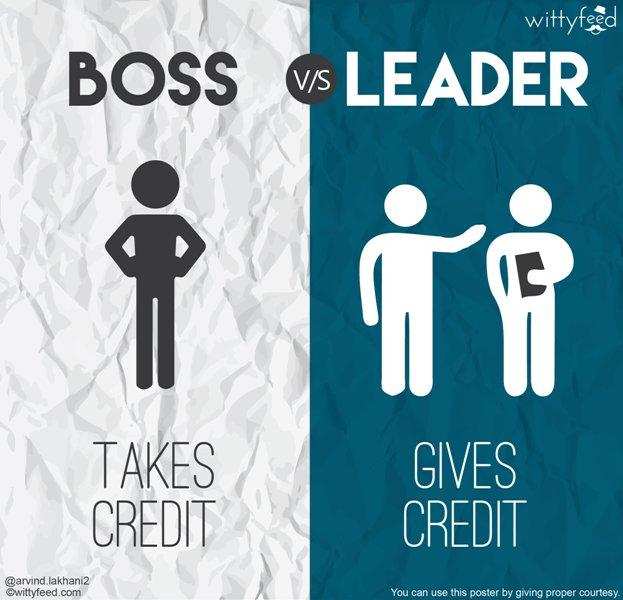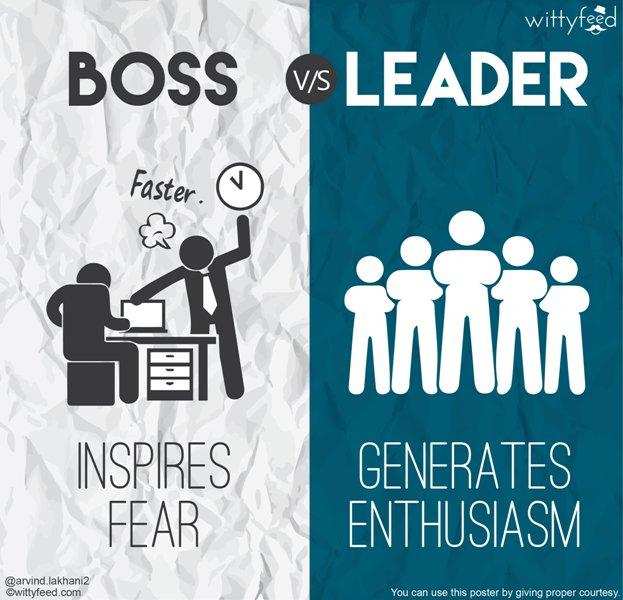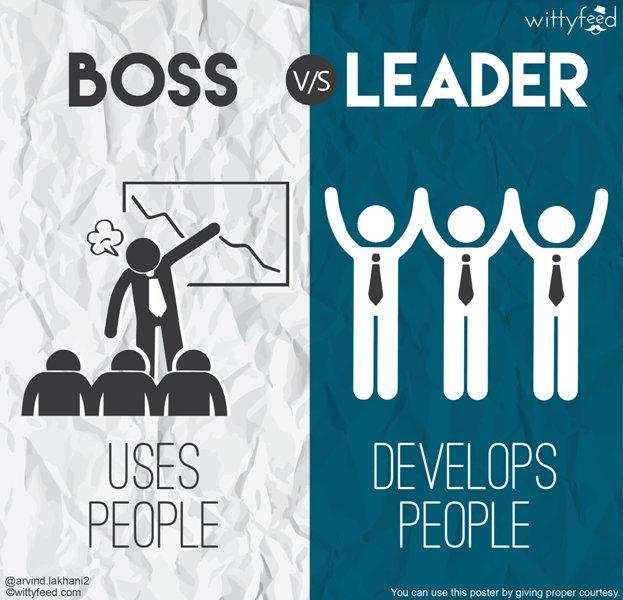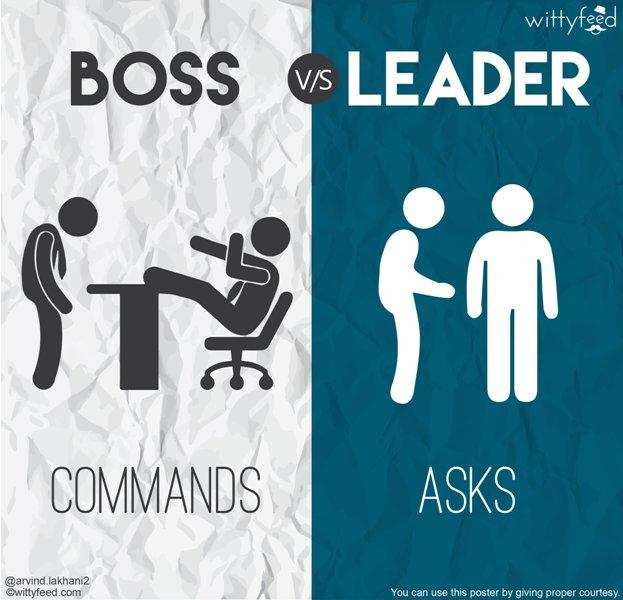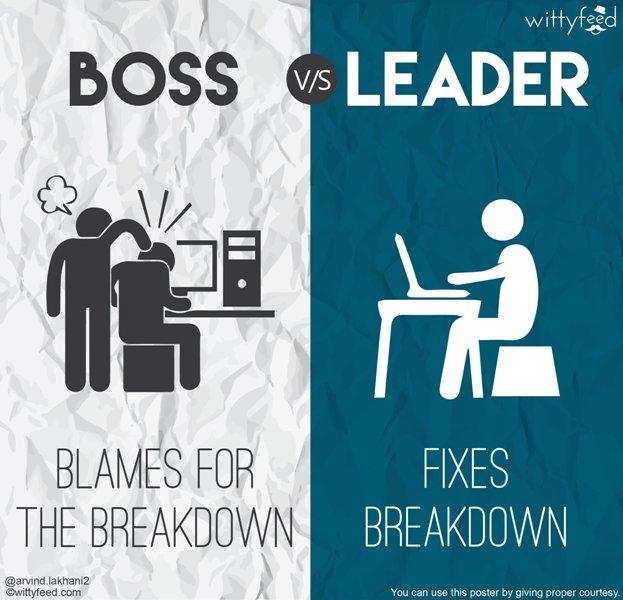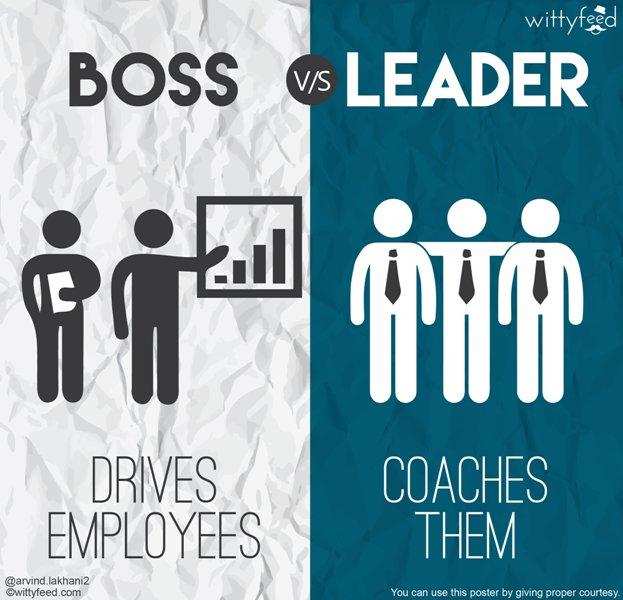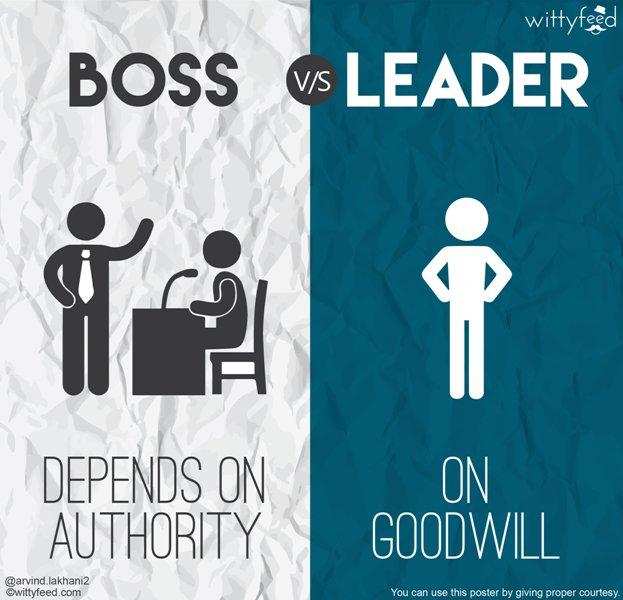http://www.businessinsider.in/Know-what-separates-A-Leader-from-A-Boss/articleshow/48020843.cms?utm_source=facebook.com&utm_medium=social&utm_campaign=FB
by RICHA SHARMA
There are good bosses, bad bosses, and then there is the rare breed of leaders, people who bring out the best of their team members. Ever wondered, what these people, we mean leaders, do differently that most 'bosses' don't? No, please don't go back digging for your management books to find an answer, because the answer doesn't lie there. The answer is here, with us, in these 8 pictures that beautifully (and subtly) explain the difference in no time. Check'em out and do let us know how convinced you are with the explanation.
Knows 'we' not 'I' build a 'successful' team
A leader knows alone he can travel few miles, but together the team can cover many. This is why they make plans for the entire team, not just themselves. However, most bosses put their highly inflated egos and self-centered personality above team spirit and thus, fail to bring out the best of themselves as well as that of the team.
Knows the power of appreciation
A great leader knows how powerful the words of appreciation are. They know how a simple ‘thank you’, ‘great job’, ‘love your idea’ and ‘you are the best’ can motivate their team members to walk an extra mile and deliver their best.
Encourages and enthuses ‘all’ minds in the team
While some people are self-motivated and are eager to learn and take new responsibilities, others need encouragement to feel motivated and get enthusiastic about their job. And this is one thing that leaders excel at.
Owns the responsibility of developing his team members
A great leader knows that every person on this earth has the potential to do something great, it is just that someone needs to spend some time for nurturing their talents and help overall growth.
Politely ‘request’ not just ‘give orders’
A leader knows that his better hierarchical position gives them the right to shoot commands or order people, but they still choose to make a polite request—simply because, they respect other people as much as they respect themselves.
Fixes problem instead of playing the ‘blame game’
In event of a breakdown, leaders do get to the root cause of the problem but only after resolving the problem at hand. Yes, they make it a point to tell people what really went wrong without playing the blame game.
Mentors people on how they can deliver their best
A good leader not just manages or dictates target, but coaches team members on how they can optimize their strengths to overcome their weaknesses so as to become a better professional.
Use ‘good will’ not ‘authority’ to get things done
An effective leader makes a good relationship with their team members, which ensures that there is enough good will that runs both ways.
